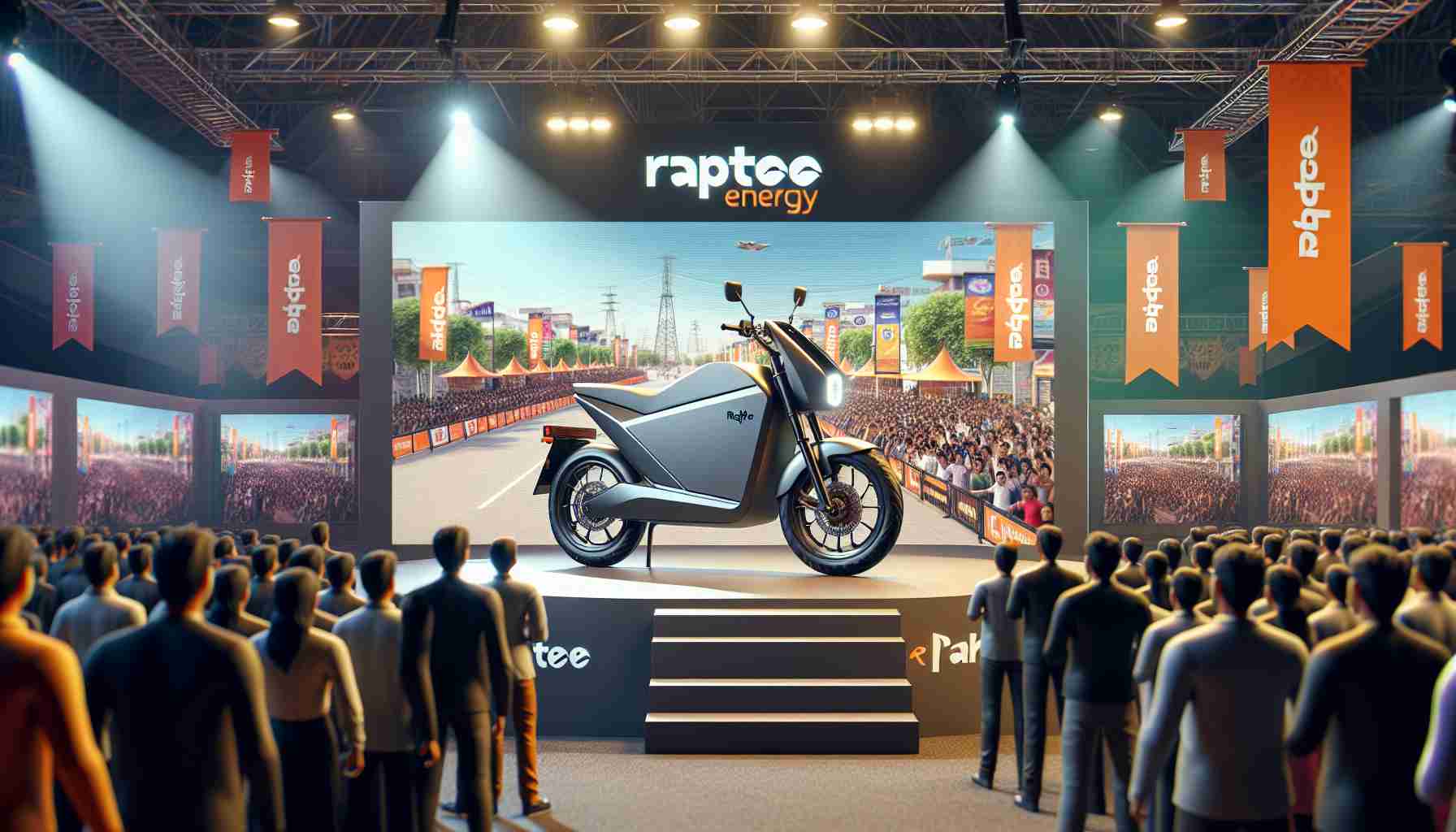Chennai-based electric vehicle (EV) start-up Raptee Energy has officially entered the electric motorbike market with the rollout of its first electric bike. Co-founded by four engineers in 2019, Raptee Energy aims to provide an electric alternative to the mid-premium motorcycle market in India.
Raptee Energy’s electric bike features a high voltage powertrain technology that delivers superior performance for two-wheelers. This technology, commonly found in the passenger car industry, allows Raptee’s motorcycles to be compatible with CCS2 charging points, commonly used for electric cars. This will make charging more convenient for users, as they can utilize the existing electric car charging infrastructure.
According to Dinesh Arjun, Raptee’s co-founder and CEO, the company’s assembly line in Chennai is fully operational, and the first batch of motorcycles will undergo rigorous testing and certification processes. Raptee Energy is targeting a commercial launch within this quarter.
To ensure wide distribution, Raptee Energy plans to establish distribution networks across India, beginning with Chennai. The company will adopt a hybrid approach, utilizing both online and offline channels. The electric bike is expected to be priced in the ₹2.5-lakh range.
Raptee Energy has invested ₹85 crore in its manufacturing plant and R&D center in Chennai, demonstrating the company’s commitment to the Indian market. The start-up has already raised approximately $5 million in funding from various venture capital firms and high net-worth individuals. Raptee Energy is currently in the process of raising additional funds as it prepares for the commercial launch.
In addition, Raptee Energy has plans to open its first store in Chennai, which will serve as both a point of sale and a brand experience center. This store will provide customers with the opportunity to learn more about Raptee’s electric bikes and experience the brand firsthand.
While the electric two-wheeler category in India is currently dominated by scooters, Raptee Energy aims to establish a foothold in the motorbike segment. With its innovative technology and strategic plans for distribution and brand experience centers, Raptee Energy is poised to make a significant impact in the Indian electric motorbike market.
The electric vehicle market in India is experiencing significant growth, driven by increasing environmental concerns and government initiatives to promote clean energy transportation. According to market research firm Allied Market Research, the Indian electric vehicle market is expected to grow at a compound annual growth rate of 22.1% from 2021 to 2027. This presents a lucrative opportunity for companies like Raptee Energy entering the electric motorbike market.
Currently, the electric two-wheeler category in India is dominated by scooters, with companies like Hero Electric, Okinawa, and Ather Energy leading the market. However, Raptee Energy aims to differentiate itself by focusing on the mid-premium motorcycle segment. This segment is relatively untapped in the electric vehicle market and presents an opportunity for Raptee Energy to carve a niche for itself.
Raptee Energy’s high voltage powertrain technology sets it apart from competitors. This technology, commonly found in the passenger car industry, allows Raptee’s motorcycles to be compatible with CCS2 charging points. CCS2 charging points are commonly used for electric cars and are more widely available than specific electric motorbike charging infrastructure. This gives Raptee Energy an advantage in terms of convenience for users, as they can utilize existing electric car charging points to charge their electric bikes.
One of the challenges facing the electric vehicle industry in India is the lack of a robust charging infrastructure. While the government is taking steps to address this issue by setting up charging stations across the country, the progress is relatively slow. This poses a challenge for electric vehicle manufacturers, as consumers may hesitate to invest in electric vehicles if charging options are limited. Raptee Energy’s decision to make its bikes compatible with CCS2 charging points could help alleviate this issue to some extent, as it allows users to charge their bikes at existing electric car charging stations.
To ensure wide distribution, Raptee Energy plans to establish distribution networks across India, starting with Chennai. The company will adopt a hybrid approach, utilizing both online and offline channels. This strategy will allow Raptee Energy to reach a wider customer base and cater to different market segments.
In terms of pricing, Raptee Energy’s electric bike is expected to be priced in the ₹2.5-lakh range. This places it in the mid-premium segment, targeting customers who are willing to pay a higher price for superior performance and innovative technology. With its competitive pricing and advanced features, Raptee Energy aims to position itself as a strong contender in the Indian electric motorbike market.
Overall, Raptee Energy’s entry into the electric motorbike market in India represents a significant development in the electric vehicle industry. With its high voltage powertrain technology, strategic distribution plans, and commitment to the Indian market, Raptee Energy is well-positioned to make a mark in the evolving electric motorbike segment.
Related links:
– Allied Market Research – India Electric Vehicle Market
– Raptee Energy Official Website
